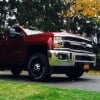Towing with 6.0 Engine? Or Do I Really Need A Diesel?
-
Recently Browsing 0 members
- No registered users viewing this page.
-
Forum Statistics
246k
Total Topics2.6m
Total Posts -
Member Statistics
-
Who's Online 18 Members, 0 Anonymous, 1,404 Guests (See full list)













Recommended Posts
Archived
This topic is now archived and is closed to further replies.